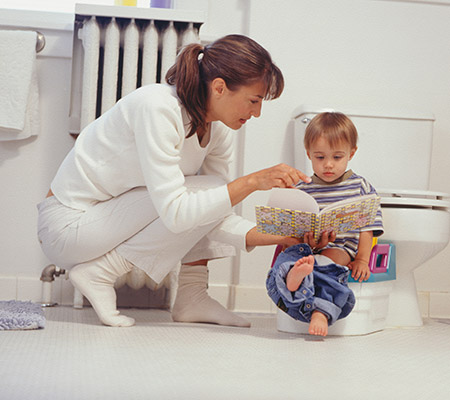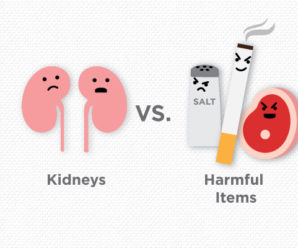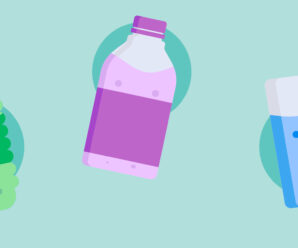
It’s a normal part of a child’s day, but sometimes it can be a real pain.
We’re talking about pooping. When it physically hurts or kids ignore the urge to go because of stress or excitement, pooping can cause problems.
Most children have one to three soft bowel movements a day, said Dr. Rajni Ahlawat, a Marshfield Clinic pediatric gastroenterologist. Constipation happens when kids have painful, hard or fewer than two bowel movements a week for one to two months. Soiling accidents, excessive stool retention or large diameter stools that clog the toilet are signs your child may be constipated.
Care My Way® gives quick treatment for common conditions like constipation. Download the app to get started.
Why do kids get constipated?
Holding bowel movements can cause constipation and make it uncomfortable and difficult to pass stool. It becomes a painful, vicious cycle.
“Constipation is common around the time kids are potty training,” Ahlawat said. “Learning to control bowel movements and use the toilet can be uncomfortable and stressful.”
Constipation is common during stressful situations and changes in a child’s daily routine such as starting school or traveling. Sometimes kids ignore the urge to go because they’re busy playing. Children may feel nervous using a public toilet or asking their teacher to be excused to the bathroom.
Not enough fiber or fluid in a child’s diet can make bowel movements hard and difficult to pass. Certain medications also can cause constipation.
Holding bowel movements can lead to accidents
When children hold bowel movements for a long time, the stool becomes drier, harder to pass and backs up in the colon.
Children have soiling accidents when softer stool leaks out around the hard stool. Urinary accidents are common in constipated children because backed-up stool in the colon presses against the bladder.
Chronic constipation and holding bowel movements can cause other problems, like stomach aches, nausea, rectal bleeding when hard stool passes, or rectal prolapse.
Prevent constipation and decrease accidents
Parents can take steps to prevent constipation from the time kids start potty training. Ahlawat suggests starting a bathroom routine in which toddlers sit on the toilet for 5-10 minutes in the morning and within 30 minutes of each meal.
“Be supportive during this time,” she said. “Reward them for their effort to use the toilet. Don’t scold kids if they have an accident, even if they’re already toilet trained.”
A diet with enough fiber and fluid helps prevent constipation. Most young children need about 32 ounces of fluid per day. To find out how much fiber your child needs, add 5 grams to his age. For example a 5-year-old child needs 10 grams of fiber per day. Whole grains, legumes, nuts, fruits and veggies are good sources of fiber.
Make an appointment with a pediatrician if your child is having soiling accidents. The doctor may recommend an enema to remove blocked stool and laxatives to prevent another blockage until the child is having daily bowel movements.
“Withholding stool can become a chronic problem but it’s not permanent,” Ahlawat said.
Related Shine365 stories
Potty training 101: Basics for parents







Leave a Reply